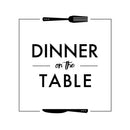World's next practice
 This week I was lucky enough to spend two days in Melbourne at the Social Traders Masters Conference. I've had two days of absorbing. Two days of thinking big blue sky. Two days of hearing from some of the brightest minds in the game about how they're using the marketplace to solve some big social problems.
This week I was lucky enough to spend two days in Melbourne at the Social Traders Masters Conference. I've had two days of absorbing. Two days of thinking big blue sky. Two days of hearing from some of the brightest minds in the game about how they're using the marketplace to solve some big social problems.
"We all know about world's best practice," mused the conference MC. "Social enterprise is world's next practice."
The truth is, social enterprise is important. Societies all around the world face some huge challenges: extreme poverty, lack of access to clean water, sanitation and health care.
These issues are not confined to the developing world. Poverty, hunger and equitable access to health and services are real problems at home in Australia. And while these problems might traditionally be thought of as within the realm of government, government simply doesn't have the resources to deal with them all.
But more than that, it's not just about money. It's about how we define the problem, and how creative we can be with solutions. Years ago, in a former life, I sat talking to a mother whose son had a significant disability. The family were financially very well off. "It's not a matter of money," this despairing mother told me. "We've got the money. We could buy more support; there are no services available for us to purchase."
Imagine the circumstance of the mother who doesn't have the financial resources.
We are all in the business of balancing needs against demands to get done the things that are important to us. When we do this successfully, we thrive. Some days it's easy: we find the help we need, or the inner strength to get the jobs done. And some days we might as well be asked to fly to the moon. At the extreme, inability to fit demands to available resources can result in poor physical and mental health, poor engagement in education, under-employment, and even family breakdown.
When families thrive; children, their parents and communities thrive. Families come in all shapes, sizes and configurations. We're not in the business of defining them: we'll leave that to you. We're in the business of cooking for them.
Our contribution to thriving families is a good dinner, and we'll cook it for you.
I often think back to that mother I spoke to years ago, and many since who don't have the same financial resources. Families living with disability may face extraordinary challenges to getting daily life done. Dinner is something Dinner on the Table can do.
It's not an expensive solution. It's not complex. But it changes the daily life of a household. For us, that's the vision for the future.
Other articles:
Quick links
Home Home Delivery Meals How it works Meal Delivery Info Contact us Blog Search About us Privacy policy Karen Will Cater
Contact us
About us
We exist to care for you through really good food. Whether it's your weeknight family meal, your big life celebrations or your large corporate events, we'd love to cook for you.
And together, we can change the daily lives of families living with disability. Find out about our social mission here.
